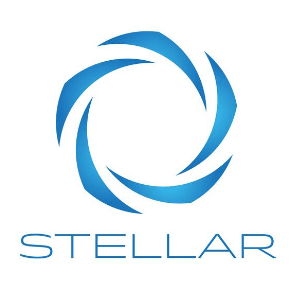Sponsored Content:
This content is not an endorsement from the ABTA.
Sponsored by Orbus Therapeutics
 The STELLAR Study is a Phase 3 clinical study designed to evaluate the efficacy and safety of Eflornithine in combination with Lomustine compared to Lomustine taken alone, in treating patients with Anaplastic Astrocytoma that has recurred or progressed after radiation therapy and Temozolomide (Temodar®) chemotherapy. The primary endpoint is overall survival with secondary endpoints including progression free survival and overall response rate.
The STELLAR Study is a Phase 3 clinical study designed to evaluate the efficacy and safety of Eflornithine in combination with Lomustine compared to Lomustine taken alone, in treating patients with Anaplastic Astrocytoma that has recurred or progressed after radiation therapy and Temozolomide (Temodar®) chemotherapy. The primary endpoint is overall survival with secondary endpoints including progression free survival and overall response rate.
Eflornithine has been granted Orphan Drug Designation and Breakthrough Therapy Designation for the treatment of patients with Anaplastic Glioma by the U.S. Food and Drug Administration (FDA), and has also been granted Orphan Medicinal Product status for the treatment of Glioma by the Committee for Medicinal Products for Human Use (CHMP) at the European Medicines Agency (EMA).
The STELLAR Study is currently open and enrolling patients in multiple sites across the United States, Canada, Italy, Germany, Netherlands, Belgium, France and the United Kingdom.
For additional information, please visit www.stellarstudy.com.
What is Eflornithine?
Eflornithine is a molecule that targets a key enzyme called ornithine decarboxylase. Ornithine decarboxylase plays a role in cancer cell growth. In research studies of humans and animals, Eflornithine has been shown to delay or stop the growth of brain cancer as well as other kinds of cancer cells. In the STELLAR Study, Eflornithine is given as a liquid medication that is swallowed 3 times per day.
What is Anaplastic Astrocytoma?
Anaplastic Astrocytoma develops from astrocytes, a type of cell that normally wraps and protects nerves in the brain and spinal cord. The specific cause of Anaplastic Astrocytoma is not known. Most of these tumors grow slowly over time, but some grow quickly. Some of these tumors transform to become a more aggressive type of tumor called Glioblastoma. When Anaplastic Astrocytoma starts to grow or change after treatment, it is called recurrent Anaplastic Astrocytoma. Currently, there are very few therapies for patients with recurrent Anaplastic Astrocytoma.
There is an unmet need for patients suffering from this disease to find new and better treatment options. This is why the brain cancer experts at Orbus Therapeutics are conducting the STELLAR study to evaluate Eflornithine for the treatment of recurrent Anaplastic Astrocytoma.
Who we are:
 Orbus Therapeutics (www.orbustherapeutics.com) is dedicated to exploring new treatment options for patients with recurrent Anaplastic Astrocytoma. Helping patients who are facing life-threatening or life-altering diseases is our passion and focus.
Orbus Therapeutics (www.orbustherapeutics.com) is dedicated to exploring new treatment options for patients with recurrent Anaplastic Astrocytoma. Helping patients who are facing life-threatening or life-altering diseases is our passion and focus.
The team of experts at Orbus Therapeutics includes Victor A. Levin, MD., senior medical advisor to Orbus. Dr. Levin has studied the use of Eflornithine in brain cancers throughout his career. Dr. Levin is the former chair of the Department of Neuro-Oncology at M.D. Anderson Cancer Center and is the founder of the Society for Neuro-Oncology. He is the author of Cancer in the Nervous System, the first comprehensive medical textbook in neuro-oncology.
Disclaimer: Eflornithine oral solution is an investigational product and may only be administered to patients who participate in the STELLAR Study. Eflornithine oral solution is not licensed for the treatment of recurrent Anaplastic Astrocytoma in the United States or any other country.


















